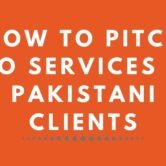Artificial intelligence has changed search—and the way we optimize for it. In Pakistan, where a fast-growing digital economy meets a vibrant freelancer ecosystem and mobile-first consumers, AI-driven SEO is quickly becoming a competitive necessity. Whether you’re an eCommerce brand in Karachi, a B2B SaaS startup in Lahore, or a services company targeting local searches nationwide, AI can help you build topical authority, create high-quality multilingual content, and win rankings faster and more efficiently.
Why AI-Driven SEO Matters in Pakistan Right Now
Pakistan’s market dynamics make AI-powered search engine optimization particularly impactful:
- Mobile-first population: A large share of traffic originates from mobile and low-bandwidth devices, increasing the importance of fast pages, structured content, and Core Web Vitals.
- Expanding internet access: Publicly available PTA data shows strong growth in broadband and 3G/4G subscriptions, creating a bigger addressable audience for search.
- Freelance and SME-driven growth: Hundreds of thousands of Pakistani professionals offer SEO, content, and web services globally—accelerating the diffusion of AI best practices.
- Multilingual opportunity: Urdu, Roman Urdu, and regional languages (Punjabi, Pashto, Sindhi, Balochi) are under-served in search, leaving room for first movers with AI-assisted content.
- Cost efficiency: AI helps lean teams compete with larger players by automating research, content briefs, clustering, and reporting.
As Google rolls out AI-powered features like Search Generative Experience (SGE) and continues Helpful Content and Core Updates, Pakistan-based teams that combine E-E-A-T (Experience, Expertise, Authoritativeness, Trustworthiness) with AI tooling are winning durable rankings.
How Pakistani Teams Are Using AI Across the SEO Workflow
1) Strategy and Research
- AI-assisted market mapping: LLMs summarize competitor SERPs, extract entities, and propose “topic clusters” to build topical authority.
- Keyword clustering at scale: Machine learning groups thousands of keywords by semantic intent, prioritizing opportunities by difficulty, search volume, and revenue potential.
- Search intent analysis: NLP models classify terms as informational, transactional, navigational, or local, optimizing content formats accordingly.
- Gap analysis: AI compares your content against top-ranking pages to highlight missing subtopics, FAQs, and schema opportunities.
2) Content Creation and Optimization
- Briefs and outlines: Tools generate briefs with headings, FAQs, internal links, and E-E-A-T signals (author bios, citations, first-hand experience).
- Multilingual content: AI helps localize English content into Urdu and regional languages while preserving tone and domain accuracy—especially valuable for local SEO and voice search.
- Programmatic SEO: Generate high-quality location and category pages (with strict templates, deduplication, and unique value) for marketplaces, classifieds, and multi-branch service businesses.
- On-page optimization: NLP scoring improves title tags, H1/H2s, entities, and semantic coverage, while avoiding keyword stuffing.
- Content refreshes: AI compares your article with current SERPs and suggests data updates, new examples, and internal links to maintain freshness.
3) Technical SEO and Automation
- Crawl and log analysis: AI highlights crawl waste, orphan pages, and index bloat; recommends canonicals and noindex rules.
- Core Web Vitals: Models correlate lab and field data to prioritize fixes for LCP/CLS/INP; generate actionable Jira tickets for devs.
- Schema markup at scale: Automate JSON-LD for Article, Product, FAQ, LocalBusiness, JobPosting, and Event, improving rich result eligibility.
- Internal linking: Algorithmic internal link suggestions bolster PageRank flow to money pages and topic hubs.
- Hreflang and localization: Validate language-region mappings for English/Urdu/regional variants targeting Pakistani cities and diaspora audiences.
4) Off-Page SEO, Digital PR, and E-E-A-T
- Entity SEO: AI helps consolidate brand mentions, Knowledge Panel data points, and consistent NAP for Local SEO.
- Prospecting and outreach: Models score link opportunities by relevance and authority; auto-draft personalized pitches with editor-friendly angles.
- Review mining: Extract themes from customer reviews to inform content and product pages; encourage UGC that reinforces trust and first-hand experience.
5) Analytics, Forecasting, and Reporting
- Predictive forecasting: Time-series models project traffic and revenue based on seasonality, SERP volatility, and content pipeline.
- Automated reporting: AI builds Looker Studio dashboards, segments queries by intent, and flags anomalies like sudden cannibalization.
- Attribution: Combine Search Console, analytics, and CRM data to tie organic traffic to assisted conversions and LTV.
AI SEO Toolstack Popular in Pakistan
- Research and SERP intelligence: Ahrefs, Semrush, Keyword Insights, LowFruits, AlsoAsked
- NLP optimization: Surfer, Clearscope, MarketMuse, Frase
- Content generation and editing: ChatGPT, Gemini, Claude, Jasper
- Technical SEO: Screaming Frog, Sitebulb, JetOctopus, PageSpeed Insights, Lighthouse
- Automation and data: Python (pandas, BeautifulSoup, requests), Google Sheets, Apps Script, BigQuery
- Reporting: Google Search Console, Google Analytics 4, Looker Studio
In the middle of this transformation, agencies like NB Disruptors are helping businesses pair human expertise with AI workflows to deliver measurable organic growth.
Local Language SEO with AI: Urdu and Regional Languages
AI makes multilingual SEO more practical and precise for Pakistani audiences:
- Urdu and Roman Urdu: Generate content in Urdu script and Roman Urdu for social and chat-first audiences; test which variant converts better by channel.
- Regional languages: Translate and culturally adapt content for Punjabi, Sindhi, Pashto, and Balochi queries; add language-specific FAQs and microcopy.
- Voice search and assistants: Optimize for conversational queries, question keywords, and structured FAQs; include speakable schema for news/long-form pages.
- Accessibility and UX: AI suggests typography and layout adjustments for Urdu script readability on mobile.
- Hreflang and metadata: Ensure correct language tags (e.g., ur-PK) and localized meta titles/descriptions.
Case Examples from Pakistan (Illustrative)
1) Karachi eCommerce Retailer
- Challenge: Stagnant category rankings; thin product descriptions; slow mobile performance.
- AI approach: Keyword clustering for 12,000 SKUs; NLP-driven product copy; automated internal linking; Core Web Vitals fixes.
- Outcome: 38% YoY increase in organic revenue, 24% more non-branded clicks, and +0.7 average ranking improvement across priority categories.
2) Lahore B2B SaaS Startup
- Challenge: Competing globally for developer and product-led keywords.
- AI approach: Entity-based content strategy, programmatic documentation SEO, technical how-to articles with code snippets generated and verified by SMEs.
- Outcome: 3x growth in organic sign-ups within six months; 40% of new MQLs attributed to SEO.
3) Multi-City Home Services Brand
- Challenge: Ranking in local “near me” searches across 10 Pakistani cities.
- AI approach: Programmatic city/area pages with unique value propositions, automated GBP post scheduling, and review sentiment mining.
- Outcome: 2.4x increase in calls from Google Business Profile and first-page visibility in 8/10 target cities.
Note: The examples above are representative of outcomes achievable with robust AI-assisted processes, strong editorial standards, and ethical link building.
Challenges Pakistan Must Navigate—and Practical Fixes
- Data quality and hallucinations: Always ground AI outputs with credible sources, fact-checking, and subject-matter expert review.
- Compliance and privacy: Monitor developments around Pakistan’s Personal Data Protection Bill; respect user consent and minimize PII in prompts and datasets.
- Cultural nuance: Use local editors to adapt idioms, examples, and CTAs; avoid direct machine translations for sensitive topics.
- Infrastructure and cost: Batch tasks, use open-source models where possible, and cache embeddings to reduce API spend.
- Talent gap: Provide SEO/AI training, SOP libraries, and mentorship; pair junior analysts with senior strategists.
What Google’s AI Changes Mean for Pakistan
AI is reshaping the SERP and raising the bar for quality:
- Search Generative Experience (SGE): Expect more zero-click answers. Counteract by publishing data-backed, experience-rich content with original visuals, tables, and hands-on insights that SGE is likely to cite.
- Helpful Content and Core Updates: Thin, templated pages are risky. Programmatic SEO must include unique value (local stats, real photos, pricing, FAQs, reviews).
- E-E-A-T signals: Showcase authors with verifiable credentials, add bylines, cite Pakistani sources, and include case studies and first-party data.
- Local results: Optimize Google Business Profile (photos, services, posts, Q&A), collect reviews, and keep NAP consistent across directories.
- Page experience: Fast, stable pages on budget Android devices matter—compress images, lazy-load, preconnect critical resources.
Training and Talent: How Pakistan Is Upskilling for AI SEO
Universities, bootcamps, and public programs have expanded digital training. Communities on Facebook, LinkedIn, and Discord share AI prompts, scripts, and case studies. Pakistan’s large freelancer base experiments rapidly with new tools, feeding best practices back into agencies and in-house teams.
- Leverage online courses (Coursera, Udemy) for NLP and analytics; combine with hands-on projects.
- Encourage hack-days: build internal linkers, schema generators, or keyword clustering scripts in Python.
- Create editorial SOPs to ensure human-in-the-loop quality and brand consistency.
A Practical 90-Day Roadmap to Adopt AI in SEO
Days 1–30: Foundation
- Audit: technical, content, links, and E-E-A-T; map against competitors.
- Tooling: finalize stack (research, NLP, crawling, reporting) and set governance for prompts and data privacy.
- Quick wins: fix cannibalization, implement FAQ and HowTo schema, compress images, and improve internal links to money pages.
Days 31–60: Build and Scale
- Topic clusters: produce AI-assisted briefs; publish 15–30 high-quality articles with original insights and visuals.
- Programmatic pages: launch or refine location/category templates with unique content blocks.
- Local SEO: optimize Google Business Profile, gather reviews, and publish weekly posts.
Days 61–90: Optimize and Prove ROI
- Refresh: update underperforming posts; add missing entities and FAQs.
- Digital PR: pitch data-led stories to local publications; earn authoritative links.
- Reporting: build dashboards for clicks, rankings by cluster, conversions, assisted revenue, and content ROI.
KPIs That Matter for AI-Powered SEO
- Leading indicators: topical coverage, NLP content scores, internal link flow, Core Web Vitals, indexation rates.
- Performance metrics: non-branded clicks, SERP feature wins (FAQ, snippets), local pack visibility, average position by cluster.
- Business outcomes: conversions, qualified leads, assisted revenue, LTV from organic.
- Quality and trust: author E-E-A-T signals, citations, review ratings, brand mentions.
The Outlook: 2025 and Beyond
Expect more multimodal search (text, voice, image, and video), deeper use of structured data, and higher emphasis on first-hand expertise. Pakistan’s advantages—a large young workforce, growing connectivity, and cost-effective engineering talent—position local companies to become global leaders in AI-driven SEO. The winners will combine rigorous technical foundations, credible human expertise, and smart automation.
Conclusion
AI is not replacing SEO in Pakistan—it’s redefining it. Teams that align AI with strategy, governance, and genuine user value are already seeing outsized returns: faster research, better content, stronger technical performance, and measurable growth in leads and revenue. Start with a clear roadmap, keep humans in the loop, and focus relentlessly on experience-rich, trustworthy content. The sooner you adapt, the further ahead you’ll be when the next wave of AI-driven search arrives.




